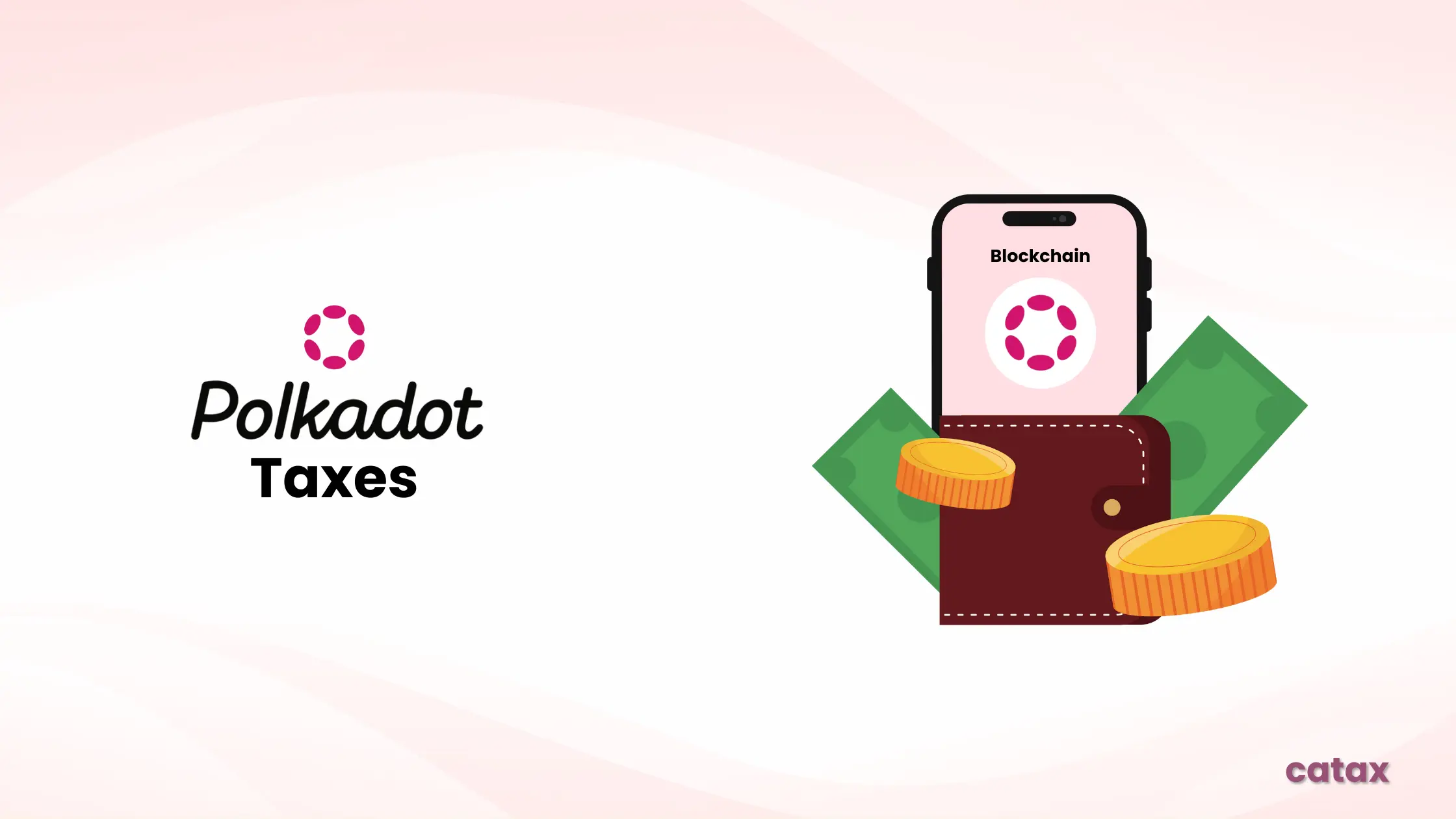Cryptocurrency tax laws vary by country, and Polkadot transactions may be taxed differently depending on where you live. Whether you’re buying, selling, trading, or staking Polkadot, it’s crucial to understand how tax authorities treat these activities and what taxes you may owe.
This guide simplifies Polkadot tax rules to help you manage your taxes and stay compliant with the law.
How to Connect Your Polkadot Wallet to Catax
Tracking your Polkadot transactions and calculating taxes is simple when you link your wallet to Catax. Here’s how to do it:
- Open your Polkadot wallet or use a block explorer like MetaMask, Trust Wallet, Ledger, or any other supported wallet.
- Copy your public wallet address.
On Catax:
- Log in to catax.app and select your country.
- Choose Chain and search for Polkadot Wallet.
- Paste your wallet address and click Connect.
Once connected, Catax will automatically track your Polkadot transactions, making tax calculations easier and more accurate.
Calculate My Taxes ➤Are Polkadot Transactions Taxable?
Yes, in most countries, Polkadot transactions are taxable. Governments may treat Polkadot as property, income, or capital assets, depending on how it is used.
When Do You Need to Pay Taxes?
You may need to pay taxes on Polkadot transactions in the following cases:
- Sell for a profit: If you sell Polkadot for more than what you paid, the profit is subject to capital gains tax.
- Trade for another cryptocurrency: If you exchange Polkadot for Bitcoin, Ethereum, or other cryptocurrencies, it may trigger a taxable event.
- Use for purchases: If you spend Polkadot on goods or services, and its value has increased since you bought it, you may owe capital gains tax.
- Earn from staking: Many countries tax staking rewards as income when they are received.
- Receive as payment: If you receive Polkadot for work or services, it is usually considered taxable income based on its market value when received.
Tax laws vary by country, so it’s important to check how your local authorities treat Polkadot transactions.
Can You Deduct Trading Fees and Other Costs?
Many Polkadot traders wonder if they can deduct trading fees, transaction costs, and security expenses from their taxable income. The answer depends on your country’s tax rules.
Some countries allow deductions for:
- Trading fees paid when buying or selling Polkadot.
- Transaction (network) fees for sending Polkadot between wallets.
- Security costs like hardware wallets, private key storage, and multi-signature protection.
Other countries may only allow deductions for:
- The cost of acquiring Polkadot, which means you can subtract the price you paid for it when selling, but you cannot deduct exchange or transfer fees.
It’s important to check your country’s tax laws to understand what deductions you can claim.
How Is Polkadot Taxed Based on Holding Period?
The tax rate on profits depends on how long you hold your Polkadot before selling. Many countries apply different tax rates for short-term and long-term capital gains:
- Short-term holdings (less than a year): These are typically taxed at higher rates, similar to income tax.
- Long-term holdings (more than a year): Some countries offer lower tax rates on long-term crypto investments to encourage holding assets.
- Flat tax rates: Some countries apply a fixed tax rate on all profits, regardless of how long you’ve held Polkadot.
Understanding your country’s tax rules for short-term and long-term holdings will help you calculate the right taxes.
You can also check out our Country-Specific Guide for Crypto in Your country. This guide provides insights on regulations, tax implications, and compliance measures breifly explained for each country.
How Is Staking Income Taxed?
Staking Polkadot can give you rewards, but the taxation of staking income differs by country. Some governments tax staking rewards as soon as they are received, while others only tax them when sold or exchanged.
How Different Countries Tax Staking Rewards
- Taxed as income: Some countries treat staking rewards like earned income, which means you owe taxes when you receive them. These rewards are taxed at your regular income tax rate.
- Taxed as capital gains: In other countries, staking rewards are only taxed when they are sold or exchanged. In this case, only the profit from selling the rewards is taxed.
If you stake Polkadot, it’s important to know when your tax obligations begin to avoid any surprises. Some countries tax staking rewards even if you don’t sell them. Be sure to check your local tax rules before staking Polkadot.
Can You Claim Polkadot Losses for Tax Benefits?
Not all Polkadot trades result in a profit. If you sell at a loss, it might help reduce your tax bill.
How Different Countries Handle Crypto Losses
- Loss offsets: Some countries allow you to offset losses against taxable profits, meaning you only pay taxes on net earnings.
- Loss carryforward: If you don’t have taxable gains in the same year, some countries let you carry forward losses to offset future profits.
- Limited deductions: Some governments do not allow crypto loss deductions, meaning your losses won’t help reduce your tax bill.
By keeping good records of your transactions, you can ensure that you report losses accurately and benefit from available tax deductions in your country.
How to Stay Compliant with Polkadot Tax Rules
As crypto tax laws tighten, staying compliant is more important than ever. To avoid penalties:
- Understand how your country taxes Polkadot transactions: Are gains taxed as capital gains, income, or business revenue?
- Check if you can deduct fees, staking rewards, and other costs: Different countries have different rules for deductions.
- Keep detailed records of all Polkadot transactions: This includes buying, selling, trading, staking, and spending Polkadot.
- Use a crypto tax tool like Catax: Catax automates tax tracking, making it easier to file your taxes accurately and avoid mistakes.
- Consult a tax professional if needed: If you’re unsure about your tax obligations, a tax expert can help you stay compliant with the law.
